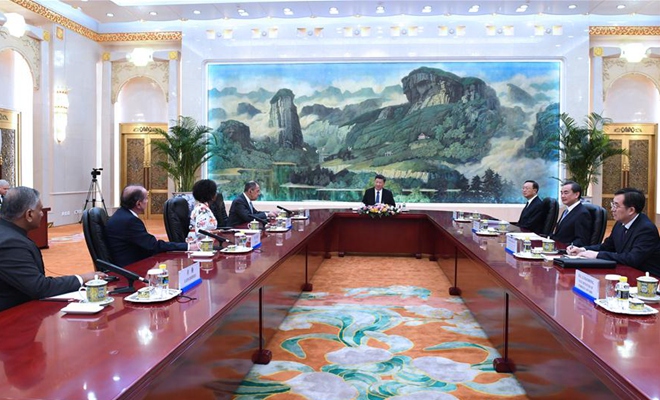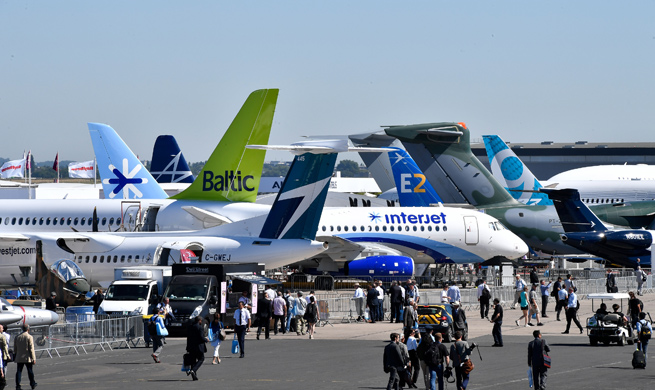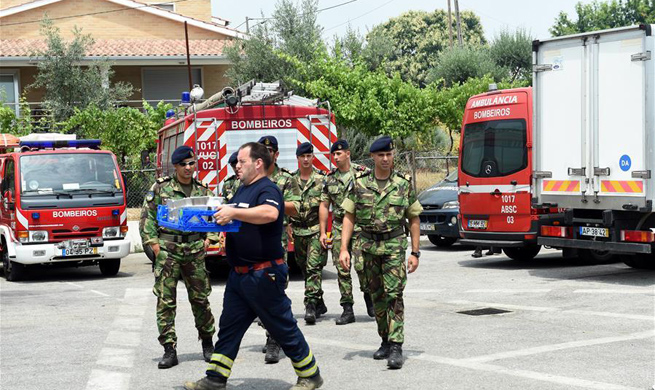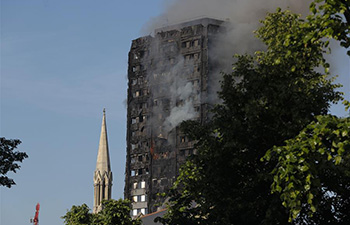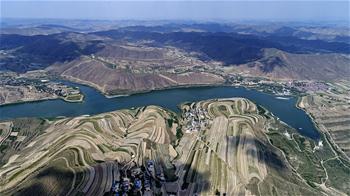by Xinhua writer Zhi Linfei
DOHA, June 20 (Xinhua) -- The ongoing crisis between Qatar and several Arab countries seems to have no sooner solution as the rivaling parties hold their unyielding ground.
On June 5, Saudi Arabia, the United Arab Emirates (UAE) and Bahrain, as well as several other Muslim nations including Egypt, cut off diplomatic ties with Qatar and closed off sea, air and land links to the tiny Gulf country.
The Saudi-led alliance accuses Doha of sponsoring terrorism, harboring extremists, interfering in their internal affairs and cultivating warm ties with Iran, a Saudi rival. Doha has dismissed the claims as unjustified.
Refusing to buckle under the pressure from the Saudi-led alliance, Qatari Foreign Minister Sheikh Mohammed bin Abdulrahman Al-Thani stated Monday it would not hold talks with any of those countries, unless they lift the sanctions first.
At the same time, the Saudi-led alliance is drafting a list of complaints about Doha, which they say should be fully addressed by Qatar before resuming diplomatic ties with it.
SAUDI SETS A HIGH BAR FOR ENDING CRISIS
After cutting its diplomatic ties with Doha and imposing sanctions, Riyadh immediately spelled out its conditions for resuming diplomatic relationship with Qatar.
Among the demands are calls on Doha to cease interference in internal affairs of other members of the Gulf Cooperation Council (GCC), expel anti-GCC elements, ban its media from inciting against the GCC and Egypt, stop supporting the Muslim Brotherhood and harboring its members, reject to grant citizenship to opposition figures in GCC countries, and ban religious people from engaging in anti-GCC activities in mosques and through the media.
Saudi Arabia has apparently set a high bar for ending the current Gulf crisis, as Doha might find that Riyadh's conditions are hard to fulfill.
To make things worse, media reports revealed that Saudi Arabia intends to present more demands as preconditions for ending the blockade, including extraditing leaders of the Muslim Brotherhood to Egypt and shutting down the Al-Jazeera TV station.
GAS-RICH QATAR'S DEEP POCKET
Despite heightened pressure from the political and economic blockade imposed by its Arab neighbors, Qatar, a gas-rich nation, has refused to back down so far.
One one hand, Doha has portrayed itself as an innocent victim of this crisis, in bid to win sympathy from the world.
While keeping relatively calm, Doha has criticized the sanctions as unfair, unfounded and inhumane, while insisting that as a GCC member it respects other nations and has never meddled in their domestic affairs.
Sheikh Mohammed said that Qatar's foreign policies are unnegotiable and no one has the right to interfere in its internal affairs.
On the other hand, Qatar, one of the richest countries in the world, has enough capability to offset the economic blockade. The tiny Gulf nation not only is the top exporter of natural gas, but also ranks third in natural gas reserve in the world.
For example, about 40 of natural gas used by the UAE is supplied by Qatar. Thus, the UAE has been relatively cautious in dealing with the dispute with Doha.
With foreign currency reserves totalling 43.6 billion U.S. dollars and a sovereign fund of 335 billion dollars, Qatar has more than enough financial capability to import goods from other countries to break the blockade by its neighbors.
Moreover, Qatar is not completely isolated in the region. Turkey, as a regional power that shares some of Qatar's ideological views and has close economic ties with Doha, has openly sided with Qatar.
Turkey, as well as Iran, a Saudi rival, have also provided humanitarian aid to Qatar to help it fight the blockade. Two GCC members, Kuwait and Oman, have not joined the Saudi-led alliance.
Other countries in the region, such as Iraq, Morocco, Algeria and Tunis, have remained neutral or refused to cut their ties with Qatar.
THERE IS STILL WAY OUT OF QATARI CRISIS
Despite the intensified diplomatic mediation efforts by Turkey and Kuwait, the crisis has not shown signs of easing. However, there is still a way out of the stalemate, analysts said.
The real cause that triggered off the crisis is the hacking of Qatar News Agency, in which top Qatari officials' statements of criticizing Riyadh and expressing support to Iran and the Hamas movement in the Gaza Strip were revealed to the public.
But U.S. media reports said that many of the statements were fake and implanted by foreign hackers in attempt to create division among the Gulf nations.
It's believed that the major way out of the current Qatari crisis is for the United States, which so far sides with Riyadh while trying to maintain a good relationship with Doha, to play the role of mediator.
By blaming Russia for the hacking, Washington might try to pave the way for the parties to back down and bring an end to the standoff, especially if Doha is willing to make certain compromises.
U.S. President Donald Trump has expressed his willingness to resolve the Qatari crisis, by proposing to hold a meeting of the leaders from the countries involved. This could help strengthen the momentum created by Turkey and Kuwait to seek a diplomatic solution to the dispute.
In a related development, Sheikh Mohammed plans to travel to the U.S. next week to discuss the effects of the blockade, as well as ways to end the crisis.
Nevertheless, due to the historic and geopolitical complexity of their disputes and the current crisis, patience is needed as it will take time for the concerned parties to achieve the goal of reconciliation.










